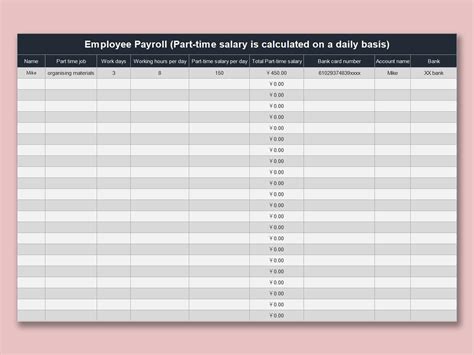In today's dynamic job market, part-time work is no longer just for students or those seeking a side hustle. It has become a strategic career choice for seasoned professionals, working parents, and anyone seeking greater flexibility and work-life balance. But a critical question remains for many: What can you actually earn with a part-time salary?
While there is no single answer, understanding the underlying factors can empower you to accurately estimate and negotiate your potential earnings. The median hourly wage for all workers in the United States is $23.11 per hour as of May 2023, according to the U.S. Bureau of Labor Statistics. However, part-time pay can range from minimum wage to well over $100 per hour depending on the specific role, your skills, and your location.
This guide will break down how part-time salaries are determined, the key factors that influence your earning potential, and the growing trends that make part-time work a viable and lucrative career path.
Understanding Part-Time Work: It's About Hours, Not Job Duties
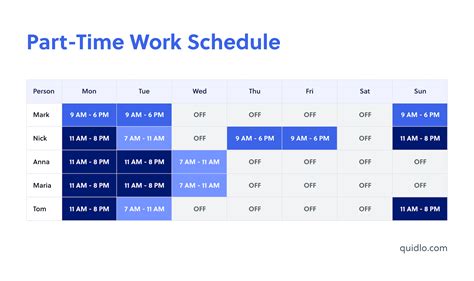
Before diving into salary, it's crucial to understand what a "part-time" role entails. The term doesn't describe a specific job title but rather a type of employment schedule. The U.S. Bureau of Labor Statistics (BLS) generally defines part-time work as anything less than 35 hours per week.
The responsibilities of a part-time worker are identical to their full-time counterparts, just performed over fewer hours. For example:
- A part-time Registered Nurse provides patient care, administers medication, and updates medical charts.
- A part-time Software Developer writes, tests, and debugs code for software applications.
- A part-time Marketing Coordinator creates social media content, analyzes campaign data, and assists with event planning.
The role defines the duties; the "part-time" label simply defines the time commitment.
The Average Part-Time Salary: How It's Calculated
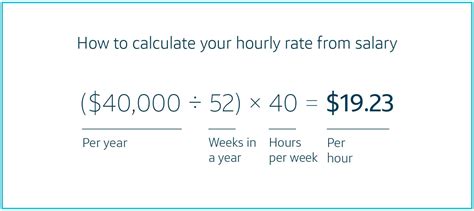
Because "part-time worker" isn't a job, there isn't a single "average part-time salary." Instead, pay is almost always calculated on an hourly basis, derived from the full-time equivalent (FTE) salary for that specific role.
The most reliable way to estimate a part-time hourly rate is to use this formula:
> (Annual Full-Time Salary for the Role) ÷ 2,080 hours = Estimated Hourly Rate
*(2,080 is the standard number of work hours in a year: 40 hours/week × 52 weeks)*
Nationally, salary aggregators provide a very broad picture. For instance, Payscale reports an average hourly rate for "Part-Time Job" holders at approximately $18.43 per hour, with a typical range falling between $12 and $30 per hour. However, this is an aggregate of vastly different jobs.
To illustrate the wide variance, let's look at estimated hourly rates for different professions based on their median full-time salaries, as reported by the BLS (May 2023):
| Job Title | Median Full-Time Annual Salary (BLS) | Estimated Part-Time Hourly Rate |
| :--- | :--- | :--- |
| Retail Salesperson | $36,360 | ~$17.48/hour |
| Administrative Assistant | $45,950 | ~$22.09/hour |
| Graphic Designer | $60,280 | ~$28.98/hour |
| Registered Nurse | $86,070 | ~$41.38/hour |
| Web Developer | $84,960 | ~$40.85/hour |
| Management Analyst | $99,410 | ~$47.79/hour |
*Source: U.S. Bureau of Labor Statistics, Occupational Employment and Wage Statistics, May 2023.*
This table clearly shows that your part-time earning potential is directly tied to the value and skill requirements of the job itself.
Key Factors That Influence Your Part-Time Salary
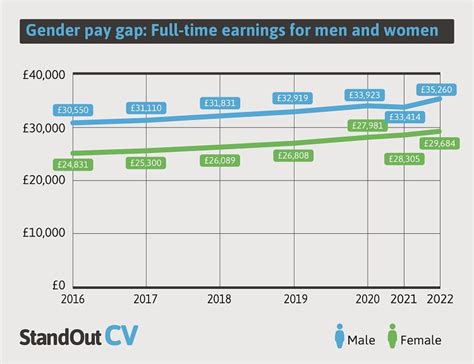
Your individual earnings will be determined by several critical factors. Understanding these will help you target the right opportunities and negotiate fair compensation.
###
Level of Education
Higher education and specialized certifications directly translate to higher-paying part-time opportunities. A high school diploma might qualify you for part-time retail or food service roles, often paying near the local minimum wage. However:
- An Associate's degree can open doors to part-time roles like paralegal assistant or medical technician, which command higher hourly rates.
- A Bachelor's degree is often the minimum requirement for professional part-time work in fields like marketing, finance, or human resources.
- A Master's degree or Ph.D. allows you to access elite part-time positions, such as an adjunct university professor, a specialized consultant, or a part-time therapist, with significantly higher earning potential.
###
Years of Experience
Experience is one of the most significant levers on your hourly rate. An experienced professional is more efficient, requires less supervision, and brings a wealth of strategic knowledge—even in a part-time capacity.
- Entry-Level (0-2 years): You can expect an hourly rate at the lower end of the scale for your profession as you build skills.
- Mid-Career (3-10 years): With a proven track record, you can negotiate a rate closer to, or at, the median for your field.
- Senior/Expert-Level (10+ years): Highly experienced professionals, especially those moving into part-time work after a long career, can command premium hourly rates. A former Chief Financial Officer (CFO) doing part-time consulting, for example, could charge upwards of $150-$300 per hour.
###
Geographic Location
Where you work matters. Salaries, both full-time and part-time, are heavily influenced by the local cost of living and labor market demand. According to data from Salary.com, a part-time administrative assistant in San Francisco, CA, might earn 30-40% more per hour than someone in the exact same role in Omaha, NE.
The rise of remote work is changing this dynamic. While some companies now pay a single national rate, many still adjust compensation based on the employee's location, even for remote part-time roles.
###
Company Type and Industry
The type of company and industry you work in will have a major impact on your pay.
- Large Corporations: Major companies in sectors like technology, finance, and biotechnology often have larger budgets and standardized pay scales, leading to higher hourly rates even for part-time staff.
- Startups: While sometimes cash-strapped, high-growth startups may offer competitive hourly rates to attract skilled part-time talent they can't yet afford full-time.
- Non-Profits & Public Sector: These organizations typically have tighter budget constraints, which can result in lower hourly wages compared to the for-profit sector.
- Small Businesses: Pay can vary widely, but small businesses often provide more flexibility in exchange for a potentially more modest wage.
###
Area of Specialization
Within any given profession, specialization pays. A generalist part-time marketer will earn less than one who specializes in a high-demand area like SEO for SaaS companies. A part-time Registered Nurse with a certification in a critical care specialty will command a higher rate than a general-practice nurse. Focusing on in-demand niches like cybersecurity, data analytics, or specialized healthcare makes you a more valuable—and better-paid—part-time asset.
The Future is Flexible: Job Outlook for Part-Time Work
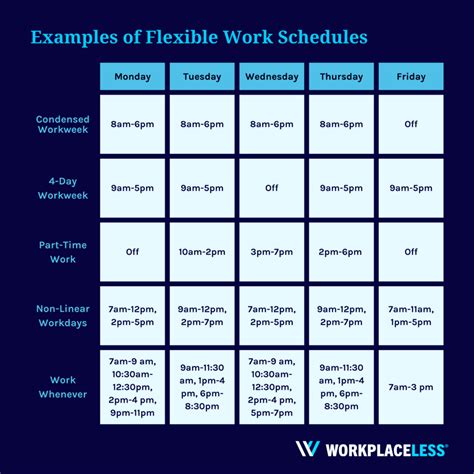
The demand for skilled part-time professionals is growing. In May 2024, the BLS reported that over 21.8 million people in the U.S. work part-time for "non-economic reasons"—meaning they chose to, not because they couldn't find full-time work. This reflects a major cultural shift toward prioritizing flexibility.
Companies are responding to this trend. To attract and retain top talent, especially in a competitive labor market, more employers are offering permanent part-time roles with professional-level responsibilities and pay. This "professional part-time" movement allows companies to tap into the expertise of seasoned workers who are no longer interested in a traditional 40-hour workweek.
Conclusion: Key Takeaways for Your Career

Pursuing part-time work can be a financially rewarding and personally fulfilling career strategy. As you explore opportunities, remember these key takeaways:
- Your Salary is Role-Dependent: The most important factor is the job itself. Research the full-time salary for your desired role to establish a baseline for your hourly rate.
- Leverage Your Experience: Your skills and years of experience are your greatest negotiation tools. Don't undersell yourself just because you are seeking fewer hours.
- Specialize for Higher Pay: Developing expertise in a high-demand niche will significantly increase your earning potential and job prospects.
- Think Like a Consultant: Frame your part-time availability as a strategic asset. You are offering focused, high-impact expertise without the overhead of a full-time employee.
By understanding these dynamics, you can confidently navigate the job market, negotiate a fair and competitive part-time salary, and build a career that truly fits your life.
